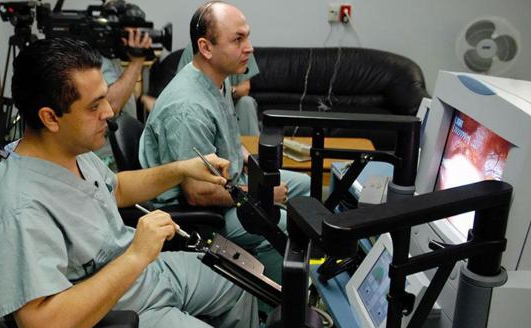Computers will do it better
By Bernard Thompson
Selling is a special art, which many believe cannot be learned by everyone.
It takes a particular skill set to build a rapport with a client, negotiate the best deal for yourself and continually push for more without irritating the buyer to the extent that they no longer wish to co-operate.
Product knowledge, persuasiveness – “the gift of the gab” – energy, ambition, psychology and an understanding of your company’s needs as well as those of the buyer are all vital.
Sales people are typically personable, often shallow (even annoying over long periods) and usually as self-interested as they are self-motivated.
Companies hire-and-fire reps with a regularity that would frighten people in other fields, most often employing them on a sink-or-swim basis.
The best stick at it for a decade or more, making enviable money. Most fall at the first hurdle or burn out over a period of a few years.
But the person-to-person sales system we have come to know is inherently flawed, as anyone in an accounting department will know.
Tension
I was once present during a classic argument between an international sales rep and an accountant who, ironically, were newly-weds.
She argued that it was the sales team than kept any company alive, as they were the ones bringing in the cash and, without whom there would be no business. She had a point.
He countered that they cared only about their targets, would do anything to get a bonus and cared nothing for the company’s profit margin. He had a point, too.
Of course, the truth is more nuanced. Different departments in companies often fail to see the value that others bring.
The accountants and financial controllers are prone to distrusting the sales teams, believing that they must be reined in in order for them to deliver value to the company in the long term, rather than being focused on the next sale at any cost.
Salespeople tend to look at minimum selling prices and fixed (even statutory) conditions as shackles imposed by people who don’t understand how hard it is to go out there every day, facing customers who constantly demand more.
But we should learn something from the fact that so few people excel at sales. And that is that the system is fraught with error, which costs business around the world billions in erroneous or non-optimal sales and costs many their existence.
It should be obvious why.
The power of a smile
I once knew a very successful sales rep who had all of the qualities mentioned above. Smart, funny, likeable, motivated, she was the top rep in her company, year after year.
She once laughed about how a nice smile was so helpful in getting a good deal.
But think about that for a moment. Imagine the performance of your company being affected by the smile of your reps. Someone with a less appealing smile sells less. The rep has received bad news, has lost a tooth, even has a garlic-and-herb baguette for lunch and your profits fall.
And there’s something else that the accountant was referring to. By instinct, sales people want to make a sale at almost any cost and that often means bending the rules.
They know the financial controller is away on holiday – then the assistant who they’ve been buttering up for the last year may be more forgiving in authorising sales that don’t quite meet the company standard.
Or they know that someone in accounts is overworked and likely to just wave through some transactions, rather than analyse them as closely as they should. And the converse of much of this applies to the buyers’ side.
But ultra-fast computers with artificial intelligence will make these issues things of the past and the evidence is already out there.
Firstly, computers trading with each other is not new. It’s just extremely expensive and therefore not currently suited to small-scale transactions, even between very large companies.
Secondly, the success of Libratus in beating the world’s top Texas Hold’em poker players has shown that, when costs permit, computer-to-computer trading will be a more efficient system for everyone.

They key moment will be when the cost of owning the computer (or more likely hiring the service from an outside provider) is less than that of the efficiency savings/profit increase.
Mind-reading
What was so remarkable about Libratus’s victory is that it was a case of a computer, using reinforcement learning, being more effective than word-class human experts when there were unknown variables (the opponents’ hands as well as the river cards).
As Wired reported player Dong Kim started to feel as if Libratus could see his cards. “I’m not accusing it of cheating. It was just that good.”
Imagine transferring similar principles to sales, which you could also describe as being something like a game of poker – both sides know their own conditions, some of the market conditions (which we could compare to the river in Hold’em) and try to infer what the other needs to make a deal.
They then use human interaction, such as bluffing, to gain an advantage. Libratus did just that, to the astonishment even of Carnegie Mellon University professor of computer science Tuomas Sandholm who, with his PhD student Noam Brown, built Libratus.
Heralding the victory, Brown said at the time: “We didn’t tell Libratus how to play poker. We gave it the rules of poker and said ‘learn on your own’.”
‘It’s even conceivable that you could have one company and one computer acting as both the buyer and seller.’
Applying that to sales should be easy, in time. Programme it with the necessary rules and conditions, statutory, financial, ethical, timely, etc., and you would have a computer that knows exactly how to get the best deal almost all of the time.
Companies relying on humans will be at a disadvantage, meaning that they will also have to automate the buying and selling processes.
It’s even conceivable that you could have one company and one computer acting as both the buyer and seller.
The humanity
But what about the human contribution? The fact is that most people who enter sales aren’t good at it and that fact is generally discovered at the company’s expense.
Buyers can do even more damage, with one mistaken purchasing decision threatening entire companies. (I’ve seen it happen, when a business manager bought an entire range of products without doing effective research. They flopped, bringing the whole division of an international company to its knees and leaving him out of a job with a fat pay-off).
The upshot of this is that, ultimately, it should be win-win for the companies that can afford it but may provide a major obstacle for startups lacking the funds.
A win-win in the sense that, for the first time buying and selling should be fully optimised, meaning that the market finds its correct level. It would also mean an end to high-pressure sales techniques preying on human weakness, or the sales rep or manager sleeping with the buyer (I’ve also witnessed that between two international companies – against the rules, of course) and other forms of corruption.
It will be quick, efficient, cost-effective, will reduce waste and, thanks to the Internet of Things, the logistics will also be taken care of.
It is notoriously difficult to predict timescales as technology accelerates at an unpredictable rate. But ten years seems too soon for the costs to be brought within the means of all but the biggest companies. It will probably already have started within two decades.
And what about the reps? Well, no one is saying they have to stop smiling.


